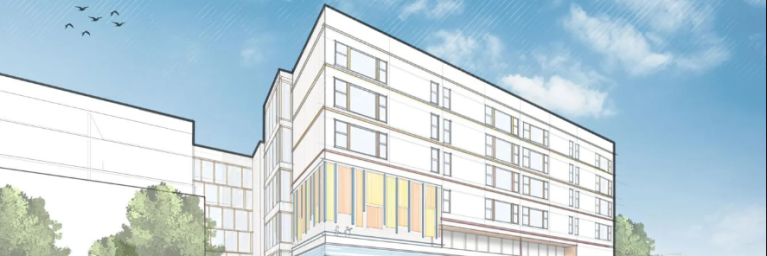
Colorado Community Revitalization Tax Credit
Program Summary
The Community Revitalization Tax Credit (CRTC) program was established with HB24-1295, Creative Industry Community Revitalization Incentives. The CRTC program builds on the success of the previous Community Revitalization Grant (CRG) program (2021-2023).
CRTC will provide up to $50 million in available tax credits (up to $10 million a year for tax years 2025-2029) for capital projects supporting the creative industry. Eligible projects can apply for tax credits of up to $3 million crediting up to 25% of the total eligible expenses of a project.
Business Funding and Incentives (BF&I) at the Office of Economic Development and International Trade (OEDIT) will issue tax credit and run the technical assistance; CCI will manage the program.
Overview
Type: Tax Credit
For: Capital improvement projects located within creative districts, historic districts, neighborhood commercial centers, or main streets that support creative industries and their workers
Amount: Eligible projects can apply for tax credits up to $3 million and up to 25% of the total eligible expenses of a project
Pre-qualification application opens: February 2026
OEDIT Divisions: Colorado Creative Industries and Business Funding and Incentives
- May 2024: HB24-1295 Signed
- November 2024: Published report summarizing the use of all of the money that was awarded as grants under the CRG grant program in the preceding fiscal year
- December 2024: Adopt and announce policies, procedures, and guidelines for the new tax credit program
- January 2025: CCI welcomes CRTC Program Manager
- February 3 to March 3, 2025: Pre-qualifying application opens to applicants
- March 24 to April 21, 2025: Full Application for CRTC program opens to those who have pre-qualified
- June 2025: Announce recipients of the tax credit for the first year of credits
An Eligible Project is a mixed-use capital improvement project within a creative district, a historic district, or a neighborhood commercial center or a main street that involves the construction, rehabilitation, conversion, remodeling, or other improvement of one or more buildings, structures, or facilities for uses that support creative industries and creative industry workers.
This includes affordable housing and live-work spaces for such workers and creative-use performance and exhibition spaces.
Eligible Applicants: businesses, corporations, and non-profits
Eligible Expenses: Reasonable and necessary expenditures in accordance with guidelines developed by the office. This Includes infrastructure, capitalized assets, tenant finishes and creative use of furniture, fixtures and equipment.
The CRTC will be adjudicated by a review panel. Panelists will serve as advisors to the CCI Advisory Council.
The panel will review and score program applications with a standardized rubric and make recommendations to staff for approval by the CCI Advisory Council. Applicants will be notified via email, through the online grant portal, of the result of the funding recommendations after the CCI advisory Council approves the recommendations.
Proposals will be evaluated on:
- Community Engagement: 25%
- Project Impact: 25%
- Project Features: 25%
- Financial Status: 15%
- Implementation and Timeline: 10%
How is the tax credit dispersed? What if your business is operating at a loss?
Businesses operating at a loss may still be eligible for the CRTC and should complete the pre-qualification application.
Are local governments eligible?
Local governments are not eligible for the CRTC program.
Can you apply for historic and CCI tax credits for the same project?
Yes, although projects awarded either the CRTC or Historic Preservation Tax Credit are not automatically guaranteed tax credits from both programs. They are independent in statute and are managed by different divisions.
When you say this is for tax year 2025, and the State’s fiscal year (FY) is July-June, does that mean that tax year starts in July 2025? So then eligible expenses will be those happening July 2025-June 2026?
No, the State of Colorado FY is July 1-June 30, while the tax year is Jan. 1-Dec. 31.
Is this for new projects only or is it available for projects that launched in 2024?
Projects that launch prior to 2024 are eligible for the CRTC program. The tax credit will apply to eligible expenditures made in the tax year of application.
What is the eligible time period for allowable eligible expenses?
"This tax credit must be utilized within the taxable period that the approved project was placed in service."
Is building acquisition an eligible expense?
Building and land acquisition are not eligible expenses. Capital improvements and Furniture, Fixtures, and Equipment (FFE) for newly acquired buildings are eligible expenses.
Can you explain mixed-use? If we have a housing project and that’s the only element of the project, is it ineligible? What if it is a renovation of buildings to become housing on a mixed-use campus?
Eligible projects must demonstrate more than one use, and at least one use needs to have a direct public benefit. CCI will investigate the eligibility of a single use facility on a multi-use campus.
How is the application review board being assembled?
Anyone interested in serving on the CRTC or any CCI review panel may complete a review panel application on the CCI website. CCI will invite interested applicants to be on each review panel, which will make recommendations to the CCI council. Details on panelists will be published in Feb. 2025.
How do non-profits, which are not required to pay taxes benefit from a tax credit?
Colorado non-profits that are in good standing may receive tax credits by completing the DR 0990 form, which serves as a credit claim scheduled with the State of Colorado. More information at https://tax.colorado.gov/DR0990
Is a nonprofit organization able to sell the tax credits to tax paying entities?
No, the CRTC in nontransferable.
Can projects partner with local Housing Authority as the developer, and can they combine these tax credits with CHFA tax credits?
Yes, there is a limit that state funding sources for a project must not exceed 50% of project expenditure.
Are program officers available for Office Hours to talk through projects?
Yes, CCI's CRTC Program Manager will start January 6, 2025. Program office hours will be published in early January.
Program Manager

